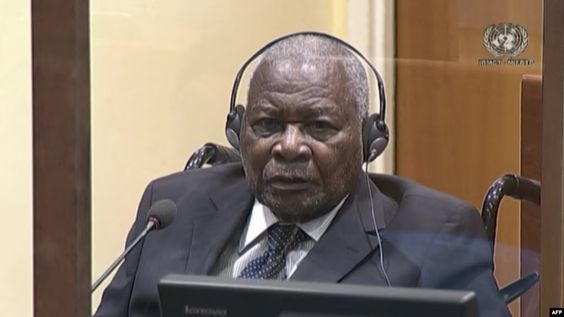Africa
Probably End of Rwandan Genocide Trial Following Court Decision

A United Nations court’s Monday decision to establish a process for hearing evidence against an elderly Rwandan genocide suspect who was deemed incompetent to stand trial was overturned by appeals judges.
The verdict probably implies that Félicien Kabuga’s trial, which began in The Hague last year, will never be finished. The judges acknowledged that this would be a setback for the survivors and victims of the 1994 genocide in Rwanda.
Kabuga’s trial was suspended in June by the International Residual Mechanism for Criminal Tribunals judges because he suffers from dementia and was unable to engage in the proceedings properly.
Kabuga, a man in his late 80s, is charged of funding and instigating the systematic murder of Rwanda’s Tutsi population. Nearly 30 years after the 100-day atrocity that claimed 800,000 lives, his trial finally took place. At a U.N. detention facility in The Hague, he is being held.
Judges ruled that he was not competent to stand trial and announced that they would set up “an alternative finding procedure that as closely resembles a trial as possible, but without the possibility of a conviction.”
In response to an appeal from Kabuga’s attorneys, an appellate panel concluded on Monday that “neither the Statute nor the jurisprudence of the Mechanism and its predecessor tribunals allows for a ‘alternative finding procedure’ in lieu of a trial,” according to a statement from the court.
According to the appeals court’s ruling, the general framework of this process “appears to circumvent statutory guarantees afforded to all accused.” They remanded the matter to the trial judges with the request that they “impose an indefinite stay of proceedings in view of Mr. Kabuga’s lack of fitness to stand trial.”
Kabuga, who had a $5 million bounty on his head and had spent years evading international justice, was apprehended close to Paris in May 2020. He was moved to The Hague to appear in court at the residual mechanism, a tribunal that hears unresolved matters from the now-defunct U.N. tribunals for the Rwandan and Balkan wars.
He was accused of genocide, incitement to commit genocide, conspiracy to commit genocide, persecution, extermination, and murder. He entered a not guilty plea to all of the counts.
The court stated that the appeals judges understood that “victims and survivors of the crimes that Mr. Kabuga is charged with have waited a long time to see justice delivered, and that the inability to complete the trial proceedings in this case, due to Mr. Kabuga’s lack of fitness to stand trial, must be disappointing.”
